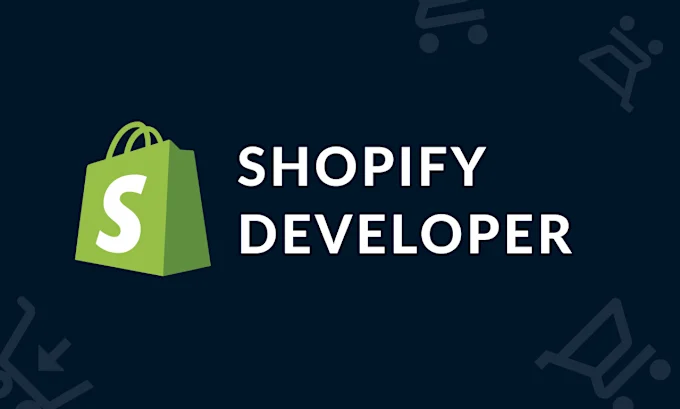
Introduction
So, have you finally decided to take your business online using Shopify? A wonderful choice indeed. But the truth is, setting up a high converting Shopify store is not about just picking a pretty theme. It is about customizing, optimizing, and building a seamless experience for your customers. That is where a Shopify site developer becomes your secret weapon.
This guide will walk you through everything-from what a Shopify developer does to how to evoke one and what to expect along the way. Think of it as your road map to launching an eCommerce site that does not just work-and runs.
What a Shopify Developer Really Does
A developer of a Shopify site is more than a coder. They are a complete understanding of the technology and the business side, enabling them to take your vision and convert it into a great-looking, fast-loading, crazy-selling site. More important, they ensure that every part of the customer journey-from landing on your homepage to clicking “checkout” feels absolutely effortless and fun.
Of course not all developers are the same. Some can navigate a few templates and others are the real experts on Shopify, able to build from scratch, integrate custom features, and bring your company to life. So, this is why the right developer is needed.
Why Themes Alone Aren’t Enough
A pre-fabricated shop theme in itself may or may not suffice depending on its aim. A planet of simple stores will work with a theme, but if it was aimed at a unique brand build, a developer is indispensable. A developer will carry out the design changes, optimize the user experience, and ensure that the functioning of the website is smooth on mobile.
A theme provides the backbone; a developer will endow your store with life, personality, polish, and power. Just like in the case of buying off-the-rack suits versus tailored suits. The former works just fine, but the latter fits like it was meant for you and makes a lasting impression.
Liquid Code Proficiency
You must also ensure that your developer has knowledge of Liquid code with Shopify. This is what dictates how your Shopify pages look and work. If your developer is not liquid-savvy, he won’t take your store beyond slight modifications.
Liquid knowledge allows the developer to work on anything and everything, from product pages to navigation menus. It is essentially what drives a store from blah to wow. So make sure this one is on the list; it is a deal-breaker.
Strong Front-End Skills
Aside from Liquid, your developer should be at ease with front-end languages including HTML, CSS, and JavaScript. These are the instruments they will use to create your store, handle layout, and interactive components.
Without this toolkit, you are limited to fixed designs and awkward functionality. An expert front-end developer makes sure your site is aesthetically spectacular, responsive, and seamless on all devices.
Shopify API experience
Shopify’s integration with other systems is among its most potent features. Your developer must know how to interact with Shopify’s APIs if you are to maximize that.
Serious customizing results from API expertise, whether it is matching your store with your inventory system or developing bespoke apps.
SEO Knowledge is a Must
If your store doesn’t show up on Google, what’s the point? That’s why your developer needs to understand SEO—especially technical SEO.
This means structuring your site so it’s crawlable, fast-loading, mobile-friendly, and keyword-optimized. With good SEO, your store can attract traffic organically and reduce your ad spend over time.

App Integration Know-How
Shopify has thousands of apps that can automate tasks and boost performance. A great developer knows which apps are worth using—and how to integrate them without slowing down your site.
They’ll also know when an app won’t cut it and when a custom solution is the better choice. This insight can save you hours of frustration and keep your store running smoothly.
Where to Find a Shopify Developer
There are tons of platforms where you can find Shopify developers, but not all of them offer the same quality. Start by looking at places like the Shopify Experts Marketplace, where developers are vetted and reviewed.
Upwork and Toptal also have experienced professionals, and you can filter by skill level, hourly rate, and client feedback to find a good match.
Check Their Portfolio
Before you hire anyone, always ask to see their portfolio. You’ll want to look at real, working Shopify stores they’ve built—not just screenshots or mockups.
This gives you a sense of their design style, the types of features they can handle, and whether they’re capable of delivering what you need.
Ask the Right Interview Questions
When you get to the interview stage, don’t just ask about experience—ask about problem-solving. Ask how they’ve handled buggy checkouts, mobile responsiveness issues, or slow load times.
A few great interview questions:
- What’s your approach to site speed optimization?
- Have you ever built a Shopify app from scratch?
- How do you handle SEO on Shopify?
- What was your most challenging Shopify project?
- How do you manage security on Shopify sites?
Cost vs. Quality: Don’t Compromise
Yes, everyone wants to save money. But going with the cheapest developer can cost more in the long run—think missed deadlines, bad design, and costly fixes.
Invest in quality. Look for someone whose pricing reflects experience and professionalism. It’s worth every penny when your store works flawlessly and looks amazing.
How Long Does It Take to Build a Site?
Timelines vary, but most custom Shopify stores take between 3 to 6 weeks to complete. Rush jobs can compromise quality, so make sure your developer sets realistic deadlines.
Speed is important—but so is attention to detail. Better to wait an extra week than launch a store full of bugs.
Make Sure They Offer Post-Launch Support
Launching your Shopify site isn’t the end. You’ll still need help with updates, performance tweaks, or new features.
A reliable developer will offer post-launch support, whether through a maintenance package or hourly billing. This keeps your store running smoothly and gives you peace of mind.
Communication is Key
Even the most talented developer may fall short in the absence of good communication. Search for someone who gets your vision, responds fast, and presents things simply.
Effective communication guarantees less mistakes, quicker problem-solving, and generally much better working relationships.
Table: Comparing Freelancers vs. Agencies
| Criteria | Freelance Developer | Shopify Development Agency |
| Cost | More budget-friendly | Higher upfront cost |
| Flexibility | More flexible | Structured workflows |
| Communication | Direct contact | Often via account managers |
| Project Size | Best for small-medium stores | Ideal for complex projects |
| Post-Launch Support | Varies | Usually included |
Conclusion
A Shopify site developer is not only a technical partner but a growth partner. Find the right developer to elevate your store, create your ideas, and make your brand unforgettable. Choose wisely; ask the right questions, and embrace quality. Because when it comes to eCommerce, your website is not just a storefront for your company, but it becomes a heartbeat of your brand.
FAQs
Do I really need a Shopify developer for a small store?
If you want a custom design, improved performance and features for growth, then, yes. Small stores also reap the benefits of hired development.
How much does it cost to hire a Shopify site developer?
Prices start at $20/hour for basic setups and go all the way to $150/hour depending on expertise. Project-based pricing usually begins around $1,000.
What are the differences between a designer and a developer?
Designers make the visuals work, whereas developers turn design into code and make it functional. You may need either one or both.
Can I hire a developer just for custom features?
Sure, this is a very common activity. There are many developers available for such one-time jobs, such as building custom checkouts, app integrations, and tweaking themes.
How do I make sure I don’t get scammed?
Use trusted platforms, check reviews, look at past work, and never pay everything upfront. Always use contracts and milestones.